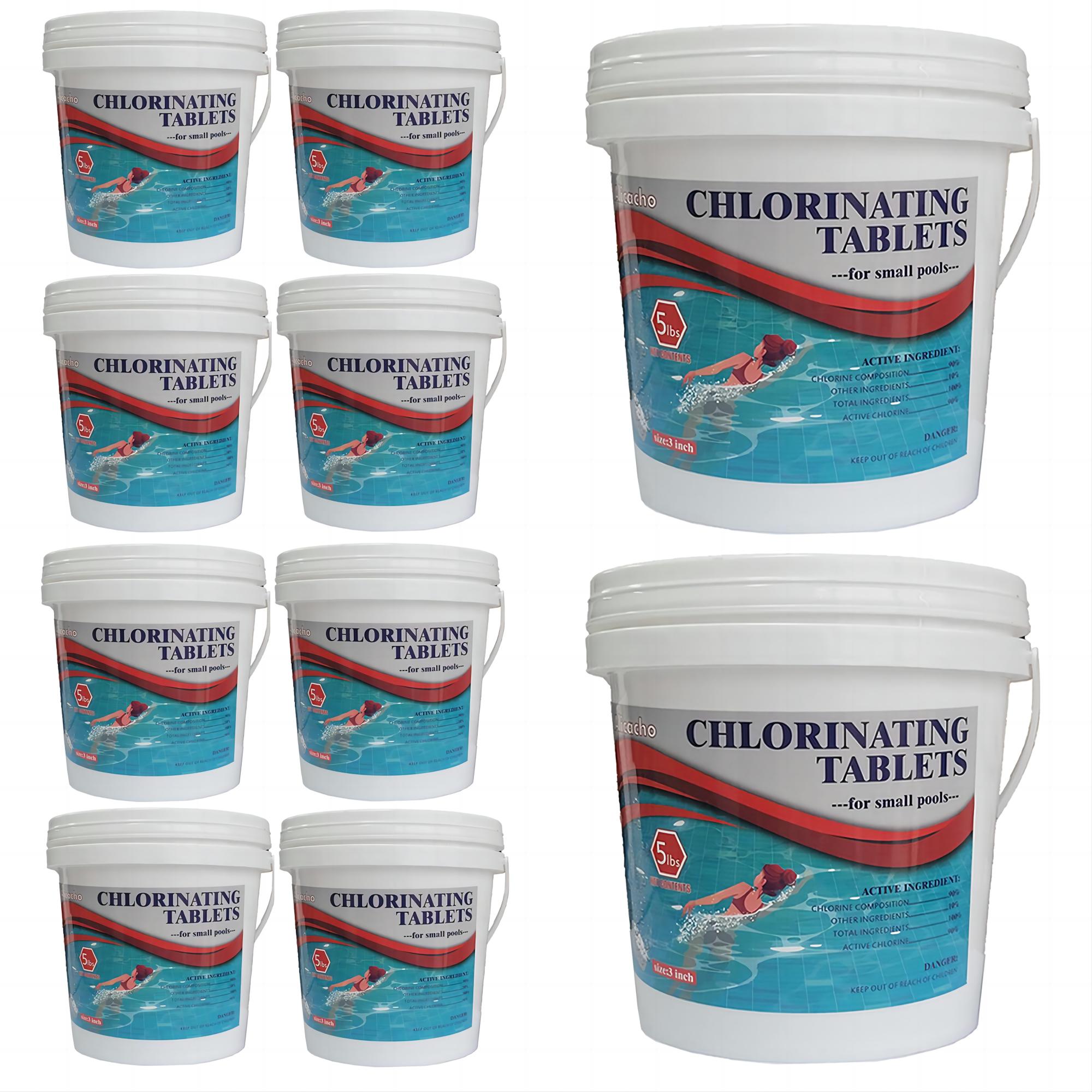To keep pools clean, chlorine is needed. But have you ever wondered at what temperature does chlorine stop working? It is essential to figure out such things for us to be able to know when to add chlorine to pools, and how much we have to add.
Chlorine plays a vital role in making sure that pools are not cloudy, greenish, and unhealthy. As pool owners having an in-depth understanding of chlorine, its components, applications, and demand based on pool size is important. Chlorine is also beneficial, and will surely be of great help to anyone who aims to have a sparkling and dashing pool for the summer!
Part 1. Getting To Know Chlorine Better
To identify important points about chlorine such as at what temperature does chlorine stop working, we have to get to know chlorine better. There are two types of chlorine, and both can be present in pools. The first one is free chlorine, which is said to be the fraction of the total chlorine that is available and can be used to disinfect pool water. Once the level of free chlorine drops below 1 ppm, the pool can already be considered unsafe to swim in.
On the other hand, combined chlorine is the fraction of the total chlorine that has already reacted with organic matter which can be present in the pool such as bacteria, algae, and many others. It is also known as the used chlorine. Once the level of combined chlorine is too high, it means that the pool water is already unhealthy, and bacteria, germs, algae, and other organic matter can already be present in it.

Chlorine in pools can be affected by too many factors. These factors are vital and must always be put into consideration when dealing with chlorine levels in your pools. Let us get to know these factors, below.
Cyanuric Acid
One of the chemicals that has a great effect on chlorine is cyanuric acid. It can be used to reduce the effect of ultraviolet rays on chlorine, and it reacts with free chlorine to form a compound that can be stable even in the presence of sunlight. On the other hand, there can also be other reactions of cyanuric acid in which they can release free chlorine. Once free chlorine is used up, the cyanuric acid can be able to provide a reservoir that can be used for disinfection while making sure that it is also safe from the sun.
Light
Once free chlorine has reacted with bacteria and other pool water contaminants, it is lost. It can also disappear once hit by sunlight. Chlorine can form hypochlorite ions which are measured as free chlorine. These ions break apart once ultraviolet radiation from the sun hits the pool water, where chlorine is released into the atmosphere in the gas form. One of the most effective ways to reduce chlorine is through sunlight, it can reduce chlorine to 90% depending on how much level a pool has. And it can only happen in two hours! To prevent such loss, some stabilizers can be used, it would also be effective to add chlorine daily or as often as needed.
Temperature
Aside from sunlight, temperature also poses indirect effects on chlorine levels in your pool water. If the water is warm, bacteria tend to grow more. And when there are lots of bacteria in your pool water, free chlorine acts up to kill all of them. And if we are asking, at what temperature does chlorine stop working, we just have to remember a simple rule of thumb, for every 10 degrees Fahrenheit above 80 degrees Fahrenheit, twice the amount of chlorine is required to maintain enough level of free chlorine that your pool needs.
There is also an effect when your pool water temperature is too low. Once it is cold, pools are not used that much, and this also means that there is less need for chlorine. Also, cold water can make chemical reactions slow. For chlorine to be effective, chlorine is most effective within the temperature range of 65°F to 99°F Once the temperature is below 65 degrees Fahrenheit, the effectiveness of chlorine tends to decline. It is best to always monitor levels of chlorine not just during the warmer season but also during cooler spring and fall months. To make sure proper levels are met, you can always use testing strips. This will also help you calculate the proper amount of chlorine to add or subtract from your pool waters.
Fall can also cause fallen leaves at the surface of your pool waters, and this can also be a problem. It is best that aside from testing pool water’s chemical levels, skimmer baskets or the physical equipment of the pool are also checked. By sticking to these practices, you can always make sure that your pool water is under quality control at all times.
Part 2. Is Chlorine Beneficial?
Of course, chlorine is beneficial for your pool water. It is needed to maintain the cleanliness of your pool because it can be able to kill germs and bacteria, and can even be used to treat algae infestation. Once your chlorine level is low, you can observe cloudy and green water, and it may pose hazards and effects for people who swim in your pool, or to pool equipment as well.
To make sure that your pool performs well, and you can always make sure that your pool is safe and healthy to swim in, it is needed that you always monitor and check chlorine levels. You can always adjust levels once your pool needs more, or decrease it once the level is too much.
As we have discussed in the previous part of the article, there can be factors that may result in your pools losing chlorine, so it is best to always make sure proper levels are well-kept.
Part 3. To Summarize It All
There can be so many factors to consider when owning a pool, it is important to know at what temperature does chlorine stop working, and many more. Each of them such as sunlight, temperature, weather conditions, water chemistry, and a lot more, must be monitored with utmost dedication to make sure that your pool water is properly maintained. It is really important especially if you own commercial pools, where people swarm in during the summer. A responsible pool owner is also willing to learn the basics of pool maintenance which also includes making sure chlorine levels are met at any temperature a location of a pool has. It is needed to provide quality service, and make sure that the pool water is clean, healthy, and free from any form of contaminants that may pose hazards to the health and body of people who use it.
Part 4. FAQs
1. What are the Different Forms of Chlorine Can Maintain Pool Water?
Chlorine can be bought in different forms. There are granules, tablets, and liquid forms of chlorine that are available in the market. These can help you maintain proper chlorine levels at all times and may help you maintain your pool to be safe, clean, and healthy.
2. In Case of a Chlorine Shortage, Which is the Best Form to Buy?
It can have chlorine shortage at different seasons since chlorine can be useful during the winter, fall, and of course, summer. It is always best to make sure that you have a sufficient supply of chlorine especially if you own commercial pools. The best form of chlorine to store is a tablet or granules. They can be stored at proper temperature ranges as indicated on their packaging and can be easily applied when needed.
3. What is the Right Dosage of Chlorine to Follow?
To make sure that chlorine has positive effects on your pool, you must know the proper dosage to apply. Of course, it is safe to always use testing kits or test strips to identify exact levels of chlorine and figure out the amount that you have to add. On the other hand, it is a rule of thumb that for every 10,000 gallons of pool water, you need one 3-inch tablet of chlorine. And in case you have the liquid form of chlorine, you have to use 52 to 104 ounces of liquid chlorine for every 10,000 gallons of pool water. And if you have the granular form, you need to use 1 pound for the same amount of pool water, or 3.3 L of liquid shock treatment.



